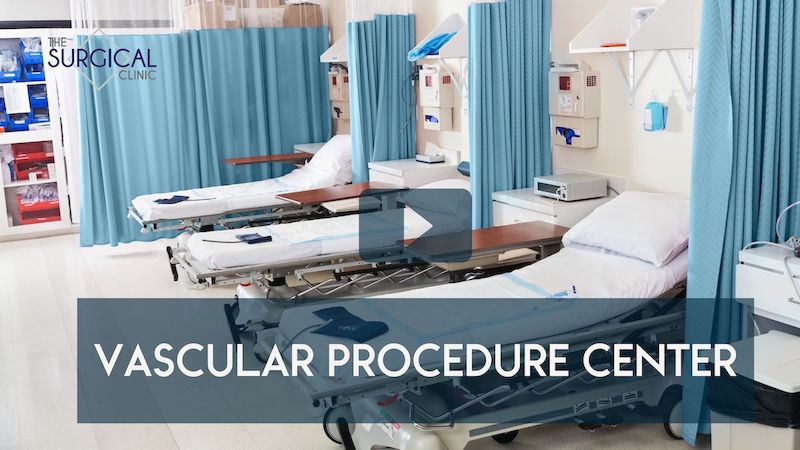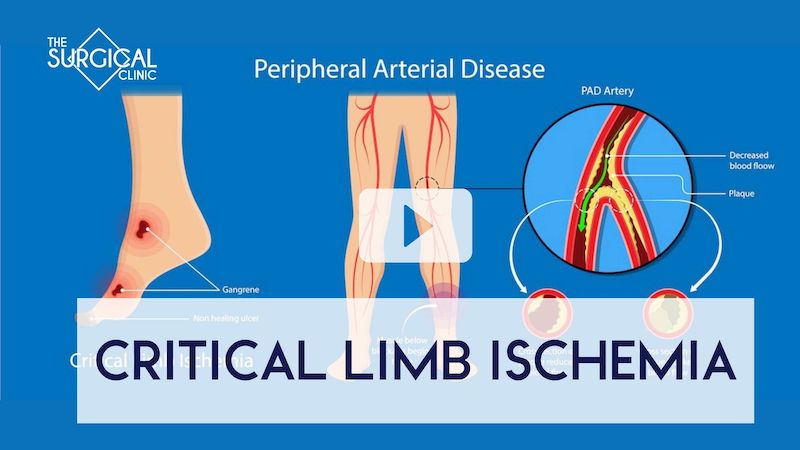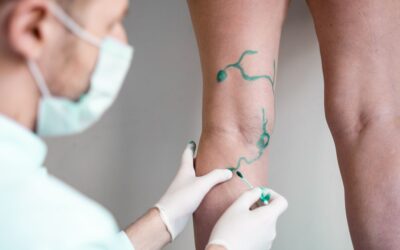Vascular Procedure Center
Nashville, TN
VPC Nashville
410 42nd Ave. N. | Ste. 400
Nashville, TN 37209
TEL:615.938.7545
Mon – Fri 7:30AM – 4:30PM

Dr. Julia Boll
Vascular Surgeon
VIEW PROFILE

Dr. Jeffery B. Dattilo
Vascular Surgeon
VIEW PROFILE

Dr. JimBob Faulk
Vascular Surgeon
VIEW PROFILE

Dr. Allen Lee
Vascular Surgeon
VIEW PROFILE

Dr. Adam Richter
Vascular Surgeon
VIEW PROFILE
About our VPC
VPC is The Surgical Clinic’s Vascular Procedure Center. It’s a center where we can offer outpatient vascular procedures to dialysis patients, people with peripheral vascular disease and more.
Diagnosis & Procedures
Angioplasty, Stenting & Atherectomy Procedures
Dialysis Access (Fistulogram/Shuntogram)
Endovenous Laser Ablation
IVC Filter Placement/Removal
Phlebectomy of Varicose Veins
Sclerotherapy for Spider Veins
Venous Stent (Venogram/Angiogram)
Vascular Procedure Center
VPC in Nashville
The Surgical Clinic’s patients who are scheduled for Vascular Surgery may be referred to the Vascular Procedure Center (VPC) in Tennessee for care. This is an office-based laboratory that offers the same level of care as you would find in a hospital for these types of procedures. However, The Surgical Clinic has created this lab as a more personal patient-focused setting that will allow you to return home after a short recovery time at the lab. Individualized care and one-on-one access to your surgeon and the lab’s specialized staff provides the possibility of diagnosing and treating all in the same day. The Vascular Procedure Lab is staffed by the best nurses and nurse anesthetists along with registered technologists who work with you and your surgeon in this intimate state-of-the-art facility.
Pre-Procedure Instructions
Pre-Procedure Instructions:
1. DO NOT EAT OR DRINK ANYTHING 8 HOURS BEFORE YOUR SURGERY INCLUDING CHEWING TOBACCO, CANDY, MINTS, GUM and COFFEE/TEA.
2. TAKE ALL REGULARLY SCHEDULED MORNING MEDICATIONS WITH A SIP OF WATER MORNING OF PROCEDURE (unless otherwise instructed see above pre-op notes).
3. You will need someone to drive you home. You WILL NOT be able to drive yourself or take a taxi public transportation, Uber/Lyft home. However, medical access rides are permitted.
4. Bring a list of your daily medication to the clinic with you.
5. The day before and the morning of procedure you will need to take a shower with anti-bacterial soap. No lotions, powders, deodorant, makeup, fingernail polish etc. should be used on body after showering.
6. Wear loose fitting clothes day of the procedure, as this is what you will go home in.
7. We ask you only bring 1-2 family members. We can only allow 1 family member back in the recovery room with patient before and after the surgery.
8. Leave all valuables at home.
9. Please be prepared to present insurance cards and drivers license.
10. A nurse will call you 24-48 hours prior to the day of your procedure to go over detailed instructions.
What does a vascular center do?
Over the years vascular surgery has gone from being inpatient type procedures, where patients are in the hospital for several days to more and more minimally invasive outpatient type procedures. The Vascular Procedure Center is a facility we began in 2012 to fill a need for patient care that we felt could probably be met in a much more efficient manner.
We not only do the minimally invasive new cutting-edge procedures, but we also do the old fashion surgery which is often times needed. Sometimes it requires a hybrid approach which requires surgery and some of these minimally invasive procedures.
What types of procedures are done at a vascular procedure center?
We do lower extremity arterial procedures here. This is for limb salvage or for people who have blockages in their arteries and in their legs. In addition, we do venous work. That includes highly complex venous reconstructions via balloon catheters and stents. This basically takes care of all of the same patients needs that we took care of in the hospital in a much more convenient, easy outpatient type facility.
What does the vascular team do?
We are fully staffed with medical assistants, with a surgical scheduler, registered nurses, X-Ray techs and nurse anesthetists that hep us with procedure here.
“I’m a nurse here at the Vascular Procedure Center and I’m the one who brings the patients back to their pre-op area and give them an overview of what their day is going to be like and what their discharge is going to be like as well as when they get home.” – Nurse at the Vascular Procedure Center in Nashville
“The physicians, the employees, the patients are what make this procedure center thrive. It’s very enjoyable to see a patient who has chronic pain, unable to walk or struggle to walk, essentially be able to walk out of here feeling much better when they leave.” – TSC Employee at the Vascular Procedure Center
Advantages of a Vascular Procedure Center
One of the advantages in doing your procedures here at the VPC is that we have the availability of all the inventories of the latest gadgets and technologies that sometimes the hospitals don’t have.
Critical limb ischemia (CLI)
CLI is a term we use to refer to something called critical limb ischemia. It’s really a catch-phrase now days that refers to advanced vascular disease, mainly in the lower extremities. CLI is really the end of the spectrum with regards to PAD. These are patients that have limb threatening problems with regards to their blood flow. Vascular surgeon, Dr. JimBob Faulk refers to CLI as “a heart attack of the leg”. Our goal and treatment in our vascular procedure center is to get our patients in early in a timely fashion and see them very closely after we do anything to treat CLI.
VASCULAR SURGERY ARTICLES
Stroke Prevention: A Comprehensive Guide | B.F.A.S.T.
Strokes can be devastating, often leaving...
Vascular Surgery: How Vascular Conditions Are Diagnosed And Treated
Seeking clarity on vascular surgery how vascular...
Should You Get Screened for PAD?
Screenings are health check-ups done by doctors...
PAD Awareness: What You Need to Know
Most people know the dangers of heart attack and...
Vascular Procedures: From Choices to Recovery
When it comes to vascular health, there's a wide...
General & Vascular Surgery in Nashville, TN
General SurgeryTop 10 Most Common General...







